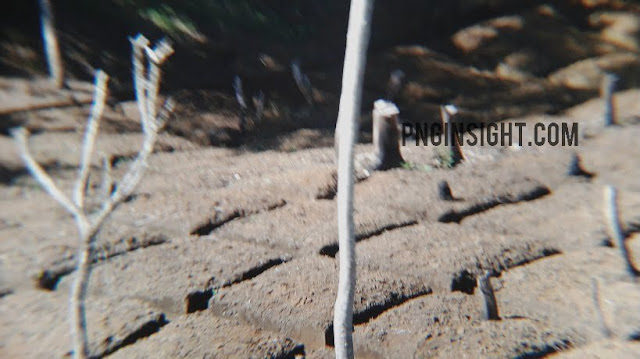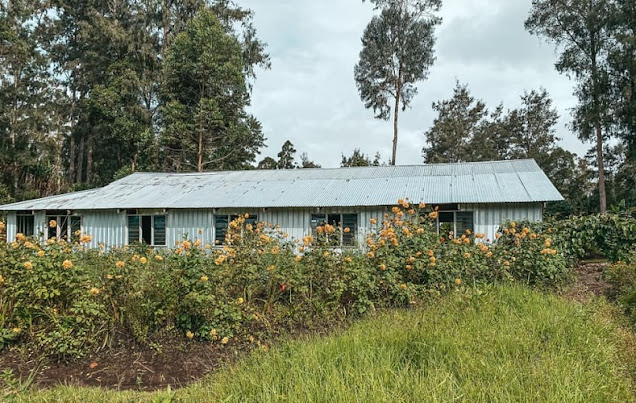Agriculture in Papua New Guinea (PNG) has a long and fascinating history that dates back thousands of years. Archaeological excavations and research at Kuk, in the highlands of PNG, have provided valuable insights into the practices of the past, shedding light on the early cultivation techniques and land usage.
This article explores the evidence of ancient agricultural practices at Kuk and what it means for the future of agriculture in PNG. It is based on ''The Case for 10,000-Year-Old Agriculture'' [PDF] in the Whagi Valley by Tim Denham, Jack Golson and Philip Hughes.
(Note that these practices are widely practised in present-day Whagi Valley and other parts of the Highlands of Papua New Guinea)
Unearthing the Past: Agriculture at Kuk 10,000 Years Ago
In 1974, while studying plantation drains at Kuk, archaeologists discovered evidence of human activities buried beneath grey clay.
Excavations in subsequent years revealed a palaeochannel and a palaeosurface, unique features dating back 10,000 years. The palaeochannel, known as Kundil's Baret, was likely used for irrigation, while the palaeosurface, found adjacent to the channel, displayed signs of former agricultural plots.
The evidence suggests that people were manipulating the environment around Kuk 10,000 years ago. They engaged in forest clearance and dryland cultivation using a swiddening regime, which involved slash-and-burn techniques. These practices led to increased erosion and significant changes in the local landscape.
The palaeosurface features, such as pits, runnels, stakeholes, and postholes, indicate that people cultivated various edible plants, including taro, bananas, gingers, yams, and other vegetables and fruits. The presence of a stone pestle used to process starch-rich food plants further confirms their reliance on agriculture for sustenance.
The Debate: Wetland Agriculture or Modified Dryland Practices?
Archaeologists and researchers have debated the interpretation of the evidence at Kuk. Some believe that the palaeosurface features indicate the emergence of wetland agriculture, specifically focused on cultivating taro. Others argue that the practices observed were similar to extensive forms of plant exploitation or potentially swidden cultivation, with no significant distinction between dryland and wetland agriculture.
While the specific interpretation remains a subject of debate, all agree that the multidisciplinary evidence points to prehistoric plant exploitation and cultivation practices. The study of plant remains, the palaeoecological signals, and the archaeological remains at Kuk offer valuable insights into the early agricultural activities in PNG.
Sustainable Agriculture and Food Security
Understanding the practices of the past can inform the future of agriculture in PNG. The ancient cultivation techniques at Kuk, focused on diverse crops for sustenance, resonate with modern concepts of sustainable agriculture and food security.
The historical reliance on a wide variety of crops highlights the importance of crop diversity in mitigating risks associated with climate change and other challenges.
Learning from the past, modern agricultural practices in PNG can be diversified, promoting the cultivation of various traditional crops alongside modern varieties.

Implications for the Future of Agriculture in PNG
Adopting sustainable farming methods, such as agroforestry and crop rotation, can enhance soil fertility and prevent erosion, contributing to long-term agricultural productivity.
By combining the knowledge of past practices with contemporary agricultural innovations, PNG can build a resilient and sustainable agriculture sector, ensuring food security and prosperity for future generations.
Drawing lessons from the past, PNG has the opportunity to develop a robust and sustainable agricultural sector.
Agriculture in PNG
Agriculture in Papua New Guinea has a rich history that spans thousands of years. The discoveries at Kuk provide a glimpse into the past practices of land usage and cultivation techniques.
The evidence suggests that early farmers engaged in diverse agricultural activities, focusing on a variety of crops to sustain their communities.
By promoting crop diversity and adopting eco-friendly practices, the future of agriculture in PNG can be cultivated to ensure the prosperity and well-being of its people for generations to come.










